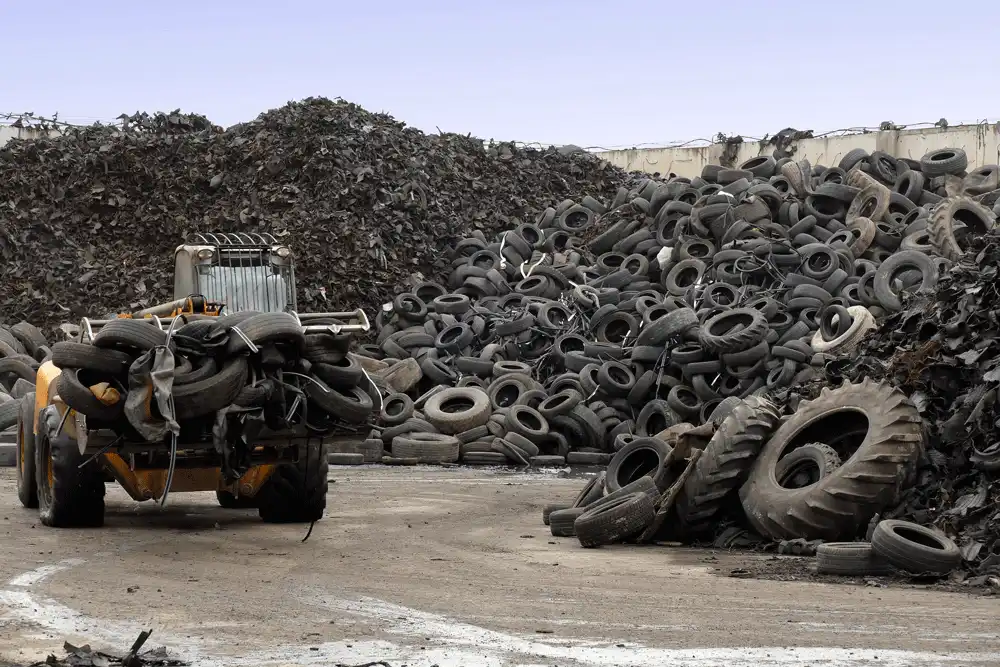Entrepreneur Ifedolapo Runsewe set up Freetown Waste Management Recycle in Nigeria, a nation that is profoundly dependent on its oil export incomes. Runsewe has recognized another synonym to black gold – used car tyres.
Who is Freetown Waste Management Recycle?
The Freetown Waste Management Recycle is a Nigerian start-up, that is an industrial unit devoted to revolutionizing used car tyres. The plant transforms old and dejected car tyres into floor tiles, paving bricks, and other goods that have witnessed major demand in Africa’s most inhabited country – Nigeria.
Ifedolapo Runsewe told Reuters that the Ibadan facility was striving to create something unique from an item that is otherwise discarded as waste. She stated that the firm was able to birth an entire valuable supply chain around these discarded tyres.
Nigeria possesses approximately 12 million vehicles. Out of these, around 10 million waste tyres are generated every year. The discarded tyres are dumped or burned. When dumped, these tyres pose a serious fire hazard to the environment. For instance, the tyre fire of Wales in 1989 witnessed its blazing flames polluting the environment even 15 years after the mishap.
Nigerian waste management is erratic. In towns, cities, and villages, bundles of waste are an everyday sight. Residents usually subject these waste objects to fire and burn them at night owing to the absence of safer disposal methods. Hence, tyres are habitually abandoned and dumped.
Freetown Waste Management Recycle depends on waste foragers who retrieve old tyres from dumping sites. These foragers are paid anywhere between NGN 70 (USD 0.17) to NGN 100 (USD 0.24) for every tyre that is procured.
Some of the discarded and waste tyres are also procured from mechanics, like Akeem Rasaq, who told Reuters that he was ecstatic to have discovered a facility that pays him for his supply of old tyres.
Rasaq told Reuters, at his roadside garage, that most of the waste tyres end up in public drainage which eventually clog the drain. However, with the onset of the recycling unit at Ibadan, things have changed for the better, he said.
Tyres are challenging to recycle owing to their bulky composition. The complex materials encompassed in the tyres contain intricate mixes and chemicals. However, this challenge has been addressed by the Freetown Waste Management Recycle facility. The facility was the first of its kind to be established in Nigeria.
The start-up initiated its operations with merely 4 employees in 2020. Today, it boasts around 128 employees under its banner and has successfully recycled around 100,000 tyres into tiles and pavers. Recycled tyres can also be utilized as railway sleepers and in asphalt.
The Freetown Waste Management Recycle industrial plant possesses machines that extract metal rings from the interiors of the tyre. Post this extraction, workers slice the tyres into sections. The tyre sections are then subjected to crushers, which break them further into minuscule pieces, dubbed as crumb rubber. The ‘crumb rubber’ is incorporated with pigments and a binder. Finally, products like floor tiles and zing-zag interlinking pavers are manufactured from the tyre’s rubber. These products are utilized to create rubber paving for driveways, playgrounds, and walkways.
Founder of the Lagos Jet Ski Riders Club, Houssam Azem, stated that it was essential to back any entity that recycles waste in the country. He supported the Nigerian start-up by purchasing Freetown Waste Management Recycle’s paving bricks for a children’s playground.
Azem stated that dumped tyres were an environmental pest, and transforming these into something that children can play on is an endeavour that serves a win-win situation for all. What’s more, this initiative will diminish the effect of waste on the environment.
